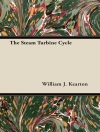This book presents the state of the art in social simulation as presented at the Social Simulation Conference 2019 in Mainz, Germany. It covers the developments in applications and methods of social simulation, addressing societal issues such as socio-ecological systems and policymaking. Methodological issues discussed include large-scale empirical calibration, model sharing and interdisciplinary research, as well as decision-making models, validation and the use of qualitative data in simulation modeling. Research areas covered include archaeology, cognitive science, economics, organization science and social simulation education.
This book gives readers insight into the increasing use of social simulation in both its theoretical development and in practical applications such as policymaking whereby modeling and the behavior of complex systems is key. The book appeals to students, researchers and professionals in the various fields.
Tabla de materias
Part 1: Computational Organisation Theory.- Chapter 1. Simulation Model of Financial Flows of an Industrial Enterprise.- Chapter 2. Drug Trafficking as Illegal Supply Chain – A Social Simulation.- Chapter 3. Influences of Faultlines on Organizational Performance.- Chapter 4. Agent-based Model and Empirical Data Integration in Architectural Design Methodology for Corporate Offices.- Part 2: Norms, Values and Salience: Modelling Socio-Economic Behaviour.- Chapter 5. Agent Based Model of Cross Media Reach of Advertising.- Chapter 6. Social Identity in Agent-based Models – Exploring the State of the Art.- Part 3: Artificial Sociality.- Chapter 7. Towards Fundamental Models of Radicalization.- Chapter 8. In CREDulity in Artificial Societies.- Chapter 9. How Does Social status In The Classroom Influence Classroom Community Formation? -Verification Using Multi-agent Simulation.- Chapter 10. Agent-based Simulation of Policies to Reconnect a City and the Countryside.












